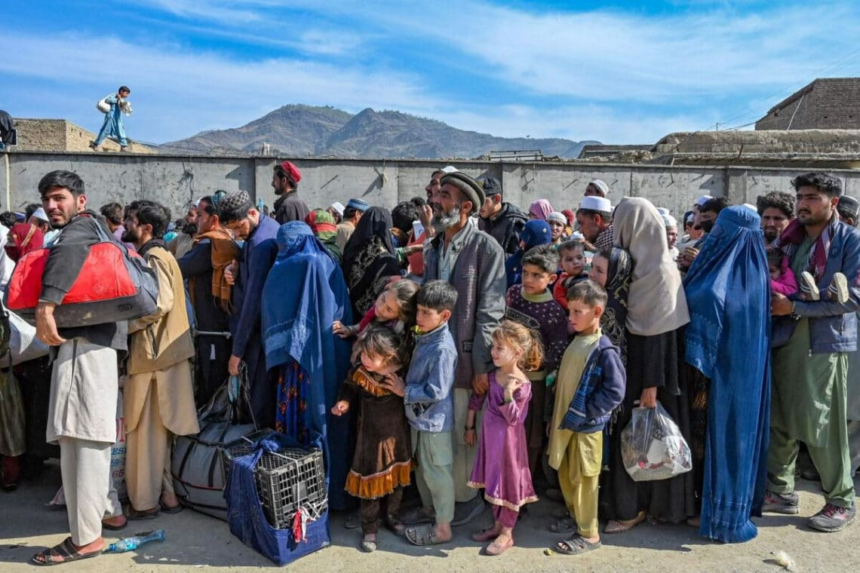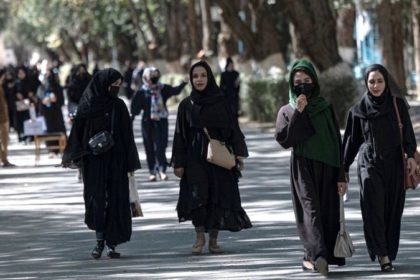RASC News Agency: In yet another grim testament to the deteriorating regional climate for displaced Afghanistani citizens, Iran and Pakistan collectively expelled 8,476 Afghanistani migrants within a single day, underscoring the accelerating humanitarian crisis that continues to unfold beyond Afghanistan’s borders.
The Taliban’s so-called Commission for Refugee Affairs confirmed that on Sunday, October 26, at least 7,996 Afghanistani migrants were forcibly expelled from Pakistan. This dramatic surge followed eight days of border clashes between Taliban fighters and Pakistani security forces and came directly after Islamabad’s explicit deportation directive, personally endorsed by Pakistan’s Prime Minister.
According to the statement, the expelled individuals were sent through the Spin Boldak and Bahramcha border crossings, where they arrived to a homeland that can no longer sustain even its current population. Migration analysts warn that such mass expulsions will exacerbate Afghanistan’s humanitarian and economic collapse, deepening poverty and pushing thousands of returnee families into destitution. The Taliban’s administrative paralysis and lack of social welfare mechanisms have rendered the regime utterly incapable of accommodating this influx.
Meanwhile, the Taliban-controlled Bakhtar State News Agency reported on Monday, October 27, that Iran expelled an additional 480 Afghanistani migrants through the Islam Qala and Pul-e Abrisham crossings some under coercion, others under what officials cynically termed “voluntary return.”
Tehran has recently introduced a new entry and labor policy for foreign workers, requiring Afghanistani laborers to obtain work visas exclusively through the Iranian Embassy in Kabul, under a system called the “Kafeel (Sponsor) Scheme.” The plan, according to Nader Yar Ahmadi, Director General of Iran’s Bureau for Foreign Nationals and Immigrants Affairs, is designed to “regularize” Afghanistani labor migration yet analysts see it as a calculated effort to tighten control and reduce the overwhelming number of undocumented migrants.
Ahmadi claimed that the initiative aims to “support Afghanistani workers” while protecting Iranian employers and domestic industries. Under this framework, employers must register online with the Ministry of Labor to request authorization for hiring Afghanistani laborers, particularly for low-wage or hazardous occupations. However, rights organizations have condemned the scheme as a bureaucratic veil over systematic discrimination, warning that it legitimizes exploitation under the guise of regulation.
While Iran and Pakistan both cite “security concerns” and “economic constraints” to justify their deportation drives, independent observers argue that these expulsions serve as geopolitical leverage tools to pressure the Taliban regime into greater compliance while deflecting domestic discontent. The expulsions also reflect growing regional impatience with the Taliban’s inability to control militant activity, curb cross-border infiltration, or engage in meaningful diplomacy.
For ordinary Afghanistani citizens, the consequences are devastating. With Afghanistan’s economy in free fall, unemployment soaring, and infrastructure collapsing, returnees find themselves trapped in a homeland governed by a regime that has neither the resources nor the will to protect them. In many cases, deported families are forced to sleep in open fields or abandoned compounds, dependent entirely on humanitarian aid that the Taliban frequently obstructs or misappropriates for propaganda.
Humanitarian agencies have described the situation at border points such as Spin Boldak and Islam Qala as catastrophic chaotic scenes of hunger, illness, and despair. Children arrive malnourished; women collapse from exhaustion; elderly migrants wander without shelter or food. Yet, the Taliban’s response has been limited to hollow press statements and token visits by provincial officials, intended more for public display than for genuine relief.
Analysts emphasize that the Taliban’s incompetence and isolation have left millions of Afghanistani migrants without diplomatic protection. Despite the group’s claims of “sovereign governance,” the regime has failed to secure even minimal agreements with neighboring states to safeguard its citizens abroad. Its foreign policy remains confined to rhetorical posturing, devoid of any tangible strategy to defend the rights of the Afghanistani diaspora.
As regional governments harden their borders and the international community grows increasingly disengaged, the plight of Afghanistani refugees has become one of the most neglected humanitarian tragedies of the modern era. Between the hostility of neighboring states and the indifference of the Taliban, displaced Afghanistani citizens remain suspended in uncertainty unwanted abroad, and unprotected at home.






